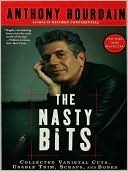More on this book
Community
Kindle Notes & Highlights
Started reading
March 10, 2025
Maybe only music has the power to bring a place or a person back, so close to you that you can smell them in the air. And I can't play guitar.
Travel changes you. As you move through this life and this world you change things slightly, you leave marks behind, however small. And in return, life—and travel—leaves marks on you. Most of the time, those marks—on your body or on your heart—are beautiful. Often, though, they hurt.
At times like these, under fire, in battlefield conditions, the kitchen reverts to what it has always been since Escoffier's time: a brigade, a paramilitary unit, in which everyone knows what they have to do, and how to do it.
Cooking is, and always has been, a cult of pain. Those of us who've spent any time in the business actually like it that way.
Perhaps the best thing chefs can do is to cook, whenever possible, with heart.
It was once said that this is the land of the free. There is, I believe, a statue out there in the harbor, with something written on it about "Give me your hungry . . . your oppressed . . . give me pretty much everybody"—that's the way I remember it, anyway. The idea of America is a mutt-culture, isn't it? Who the hell is America if not everybody else? We are—and should be—a big, messy, anarchistic polyglot of dialects and accents and different skin tones.
No single development in Western gastronomy has changed our lives as drastically or as well as that first moment when Americans and English-speaking restaurantgoers decided they could let go of their instinctive wariness of raw fish—that sashimi and sushi were cool and desirable and worth paying for. From a marketing standpoint, the spread of sushi lifted all boats for all chefs.


